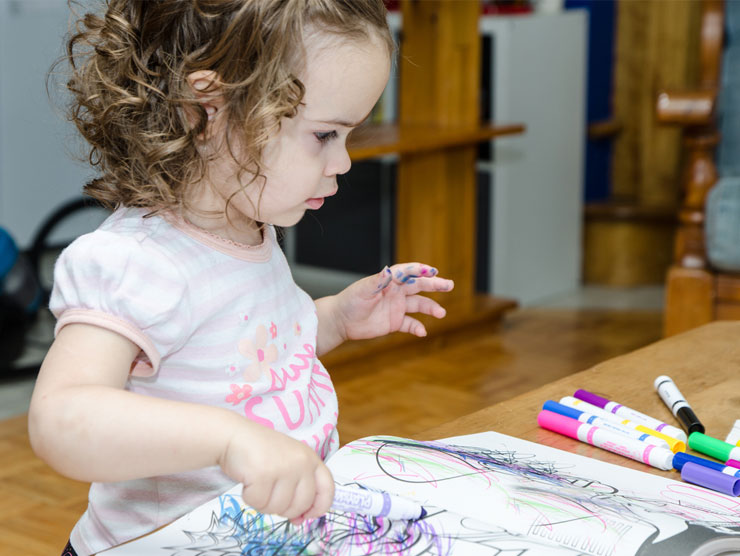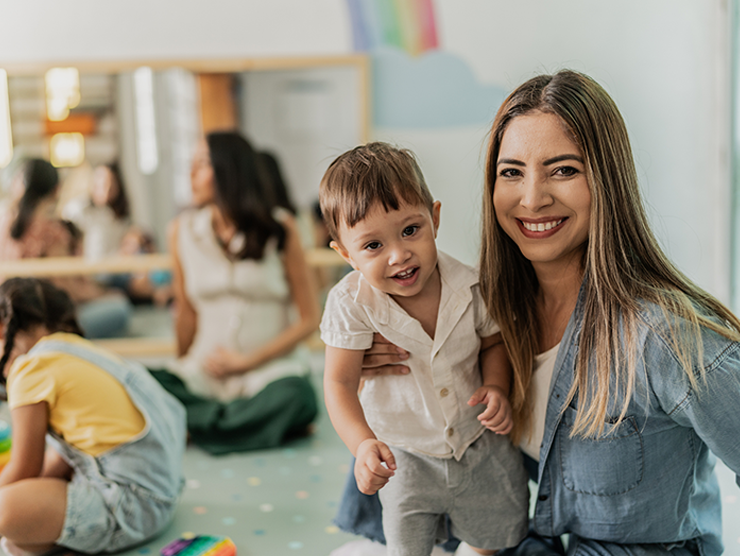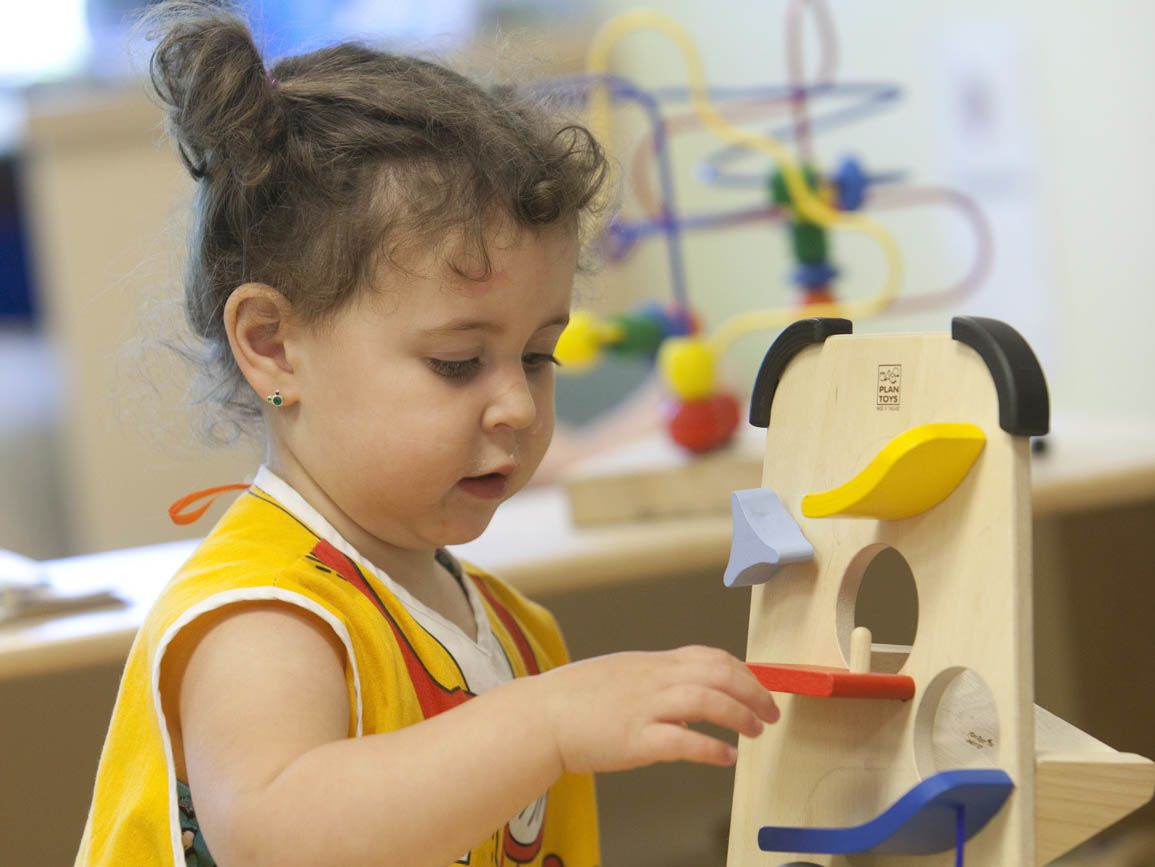Most families look forward to the first day of kindergarten with a mix of feelings, ranging from excitement and pride to nostalgia and even a little sadness. Kindergarten marks the beginning of a child’s forward push toward independence. But while it represents a major step and a big change, it is not the endpoint. It is one of many moments on the path of becoming a lifelong learner.
Long before children reach kindergarten, though, parents and teachers wonder about school readiness; “Will my child be ready for school?” and “Are we doing enough?” are common questions.
What are the 6Cs of school readiness?
To be school-ready is to be future-ready. Consider for a moment how much our world has changed in the past 20 years; our handheld devices contain almost infinite stores of knowledge, digital streaming has made DVDs and CDs practically obsolete, and with a few clicks you can order almost anything you can imagine. We are living in a remarkable time, with unprecedented challenges and opportunities yet our education model has changed very little.
In their book, Becoming Brilliant, Drs. Roberta Michnick Golinkoff and Kathy Hirsh-Pasek describe what they call the 6Cs, six essential life skills and competencies children need in order to be successful in the 21st century. These skills include:
- Collaboration
- Communication
- Content, which includes literacy, math, science, and history
- Critical thinking
- Creative innovation
- Confidence
Opportunities to develop the 6Cs benefit all children, both in childhood and the future, regardless of later interests, aptitudes, and career goals.
School readiness in the classroom
Rachel Robertson, Bright Horizons Chief Academic Officer says “We don’t simply want to teach children to know what is already known, but to be the creators of new knowledge: to be the thinkers, leaders, problem-solvers, innovators, and entrepreneurs of our future.” While it might be tempting to impose rigorous “drill and repeat” teaching strategies, these techniques do not match the reality of how children learn or what they need to grow and thrive. Embedded learning within meaningful contexts, projects, and playful experiences are most effective. Through these kinds of classroom experiences, children remember their learning longer and at a deeper level, even several years later.
At Bright Horizons, as we prepare children to be ready for their journey from child care into school programs, we focus on all aspects of child development—cognitive, physical, language, and social-emotional. We know that this approach gives children their best chance for healthy, happy, successful lives. Below are a few of the characteristics to look for in a high-quality early childhood program that focuses on school readiness:
- Opportunities for meaningful play, project work, experimentation, and discovery. This type of learning is powerful for building the 6Cs described above. Children must understand not only what to learn but also how to learn. We want children to observe; ask questions; notice similarities, differences, and patterns; and solve problems, all aspects of critical thinking.
- Math, literacy, and science (content) are interwoven throughout the day, rather than in isolation (worksheets and flash cards). For example, while planting a garden in a center or classroom, the children read books about plants, make signs and notes, measure the garden area, learn about soil and composting, count out and plant seeds, and care for and harvest the garden. The learning is rich, immediate, and relevant, and tends to stick with children.
- An emphasis on trusting relationships and caring social interactions. Social-emotional development is the foundation for all other learning and must be a priority. Teachers understand that young children are still learning and will make mistakes. Children are gently guided and encouraged as they gain confidence and learn to collaborate, share, take turns, communicate, and resolve conflict with each other.
- Along with healthy social-emotional growth, executive function skills are considered among the most important for school success. Classroom experiences include opportunities for children to practice these skills, such as following directions, delaying gratification, thinking critically, and showing persistence and curiosity.
- Well-rounded literacy activities. In addition to learning the letters of the alphabet, children must develop vocabulary, listen and communicate effectively, and view reading and writing as pleasurable and important ways to share ideas and gain knowledge. Children gain literacy skills by listening to and reading stories, having meaningful conversations, writing notes, graphs, and stories, and conducting research for projects.
- Open-ended art, storytelling, poetry, dramatic play, music and experiences in nature. Children often use these experiences to access other kinds of information and learning; additionally, they build creativity and critical thinking as they participate in the arts and nature.
Bright Horizons Discovery Driven Learning® approach to teaching and learning provides young children the ability to establish strong foundations in reading, writing, and math; and beyond that, Discovery Driven Learning helps children understand not just what to learn, but how to learn. Our most recent school readiness study surveyed parents and teachers of more than 1,000 Bright Horizons graduates and demonstrated the impact of Discovery Driven Learning at Bright Horizons:
- 94% of teachers say that Bright Horizons played an important role in preparing children for school success
- 94% of parents felt pleased with their child’s acquisition of learning skills
- 95% of parents felt Bright Horizons prepared their graduate social-emotionally
When school readiness goes beyond traditional academic learning and incorporates future-forward skills, the result is children who are not only prepared for a successful transition to kindergarten but who have the foundation for downstream success.
Learn more about what school readiness means, how Bright Horizons helps prepare children for school, and our discovery-driven approach to learning on our school readiness page.
School readiness at home
There’s a lot of hype about school readiness. Daily routines contain a vast array of organic teaching opportunities that can help boost the development of the 6Cs. Doing the following four things can help:
- Talk with your child. Encourage expressions of feelings and find time to share love and appreciation. These moments build your child’s confidence and ability to communicate and collaborate.
- Read to your child. We can’t predict everything children will need to know to be successful in the future, but we can offer a love of reading that will allow them to learn content throughout their lives.
- Play with your child. Board games, blocks, active games, and silly moments all forge communication and collaboration.
- Experience nature. The natural world is a laboratory that encourages risk, critical thinking, observation, and creative innovation.
At Bright Horizons, we prepare your child to be a good learner and to love the process of learning. Learn more about Discovery Driven Learning, and check out a BH program near you.
Reimagining school readiness - Teach. Play. Love. Episode 66
In this episode of Teach. Play. Love., our hosts and education experts Rachel Robertson and Claire Goss redefine school readiness and what you can do at home to support your child’s school readiness skills.

.ashx?as=1&h=556&w=740&la=en&hash=B667DBE9B1364AD47D32B2196EEB49C4)



